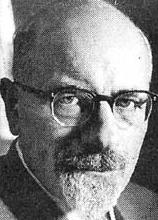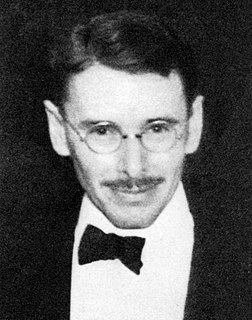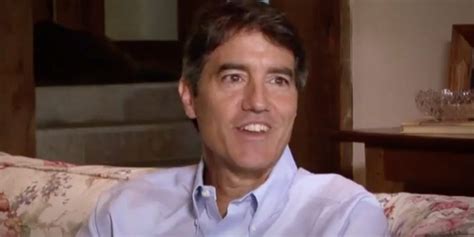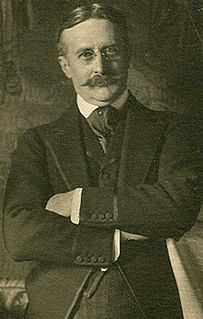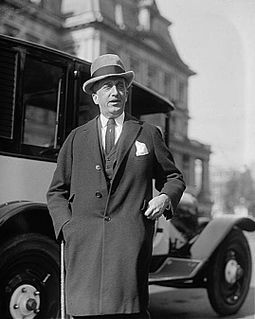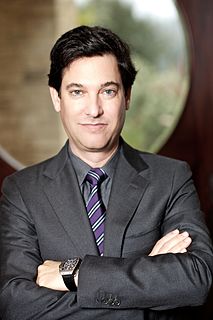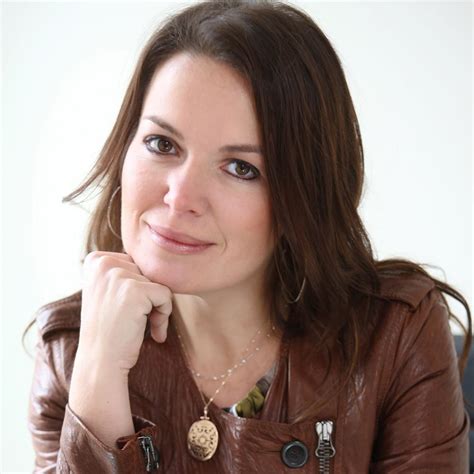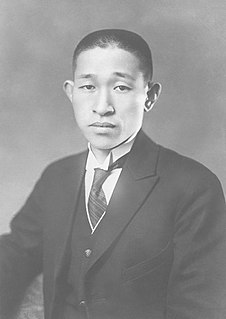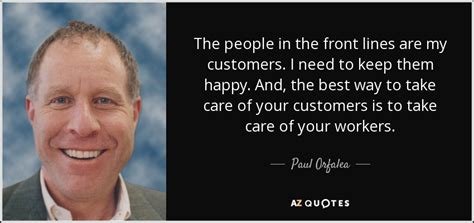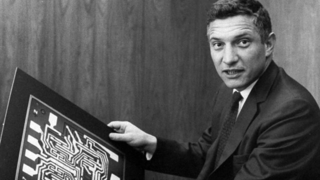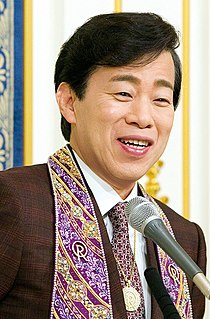A Quote by Eric Johnston
The things a man believes most profoundly are rarely on the surface of his mind or tongue. Newly acquired notions, decisions based on expediency, the fashionable ideas of the moment are right on top of the pile, ready to be displayed in bright after dinner conversation. But the ideas that make up a man's philosophy of life are somewhere way down below.
Related Quotes
Ideas are dangerous, but the man to whom they are least dangerous is the man of ideas. He is acquainted with ideas, and moves among them like a lion-tamer. Ideas are dangerous, but the man to whom they are most dangerous is the man of no ideas. The man of no ideas will find the first idea fly to his head like wine to the head of a teetotaller.
The Wise Man believes profoundly in silence - the sign of a perfect equilibrium. Silence is the absolute poise or balance of body, mind and spirit. The man who preserves his selfhood ever calm and unshaken by the storms of existence - not a leaf, as it were, astire on the tree, not a ripple upon the surface of the shinning pool-his, in the mind of the unlettered sage, is the ideal attitude and conduct of life. Silence is the cornerstone of character.
Man is naturally self-centered and he is inclined to regard expediency as the supreme standard for what is right and wrong. However, we must not convert an inclination into an axiom that just as man's perceptions cannot operate outside time and space, so his motivations cannot operate outside expediency; that man can never transcend his own self. The most fatal trap into which thinking may fall is the equation of existence and expediency.
Ideas are powerful things, requiring not a studious contemplation but an action, even if it is only an inner action. Their acquisition obligates each man in some way to change his life, even if it is only his inner life. They demand to be stood for. They dictate where a man must concentrate his vision. They determine his moral and intellectual priorities. They provide him with allies and make him enemies. In short, ideas impose an interest in their ultimate fate which goes far beyond the realm of the merely reasonable.
The Master gives himself up to whatever the moment brings. He knows that he is going to die, and her has nothing left to hold on to: no illusions in his mind, no resistances in his body. He doesn't think about his actions; they flow from the core of his being. He holds nothing back from life; therefore he is ready for death, as a man is ready for sleep after a good day's work.
The ordinary method of education is to imprint ideas and opinions, in the strict sense of the word, prejudices, on the mind of the child, before it has had any but a very few particular observations. It is thus that he afterwards comes to view the world and gather experience through the medium of those ready-made ideas, rather than to let his ideas be formed for him out of his own experience of life, as they ought to be.
A man once jumped from the top floor of a burning house in which many members of his family had already perished. He managed to save his life; but as he was falling he hit a person standing down below and broke that person's legs and arms. The jumping man had no choice; yet to the man with the broken limbs he was the cause of his misfortune. If both behaved rationally, they would not become enemies.
It seems to me that the thing that makes the theater worthwhile is the fact that it attracts so many people with ideas who are constantly trying to share them with the public. Real art is illumination. It gives a man an idea he never had before or lights up ideas that were formless or only lurking in the shadows of his mind. It adds stature to life.
Perhaps the most reliable route to meaning and joy, to plunging below the surface and seeking more than the superficiality of material ambition, is connection with people, places, ideas and issues. Of these, the most important are people and relationships. And the most reliable route to relationships is conversation.
There is no God separate from you, no God higher than you, the real "you." All the gods are little beings to you, all the ideas of God and Father in heaven are but your own reflection. God Himself is your image. “God created man after His own image." That is wrong. Man creates God after his own image. That is right. Throughout the universe we are creating gods after our own image. We create the god and fall down at his feet and worship him; and when this dream comes, we love it !
In a way, Che Guevara's fate was far worse than Simon Bolivar's. Guevara's collapse was complete: his intentions were forgotten, but his style was taken up by boutique owners (one of the fanciest clothes stores in London is called Che Guevara). There is no faster way of destroying a man or mocking his ideas than making him fashionable. That Che succeeded in influencing dress-designers was part of his tragedy.









